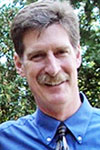Researcher: Dispel Newtown’s misreporting

In the wake of the Newtown, Conn., grade school killings, the Associated Press has issued guidelines for reporters on coverage of mental disorders.
“That’s a good, first step in dispelling the myth that autism causes people to commit horrific crimes,” said a Washington State University psychology professor who has researched the disorder.
After Adam Lanza shot 27 people and then himself on Dec. 14, numerous media reports implied a link between his shooting rampage and the fact that he had Asperger’s syndrome, a high-functioning type of autism.
“When I first heard that, I thought, ‘Oh no, this is bad. This is really bad,’” said WSU psychologist Theodore Beauchaine, who spent a decade researching the condition that affects one in 88 children, according to the most recent estimate by the U.S. Centers for Disease Control and Prevention.


